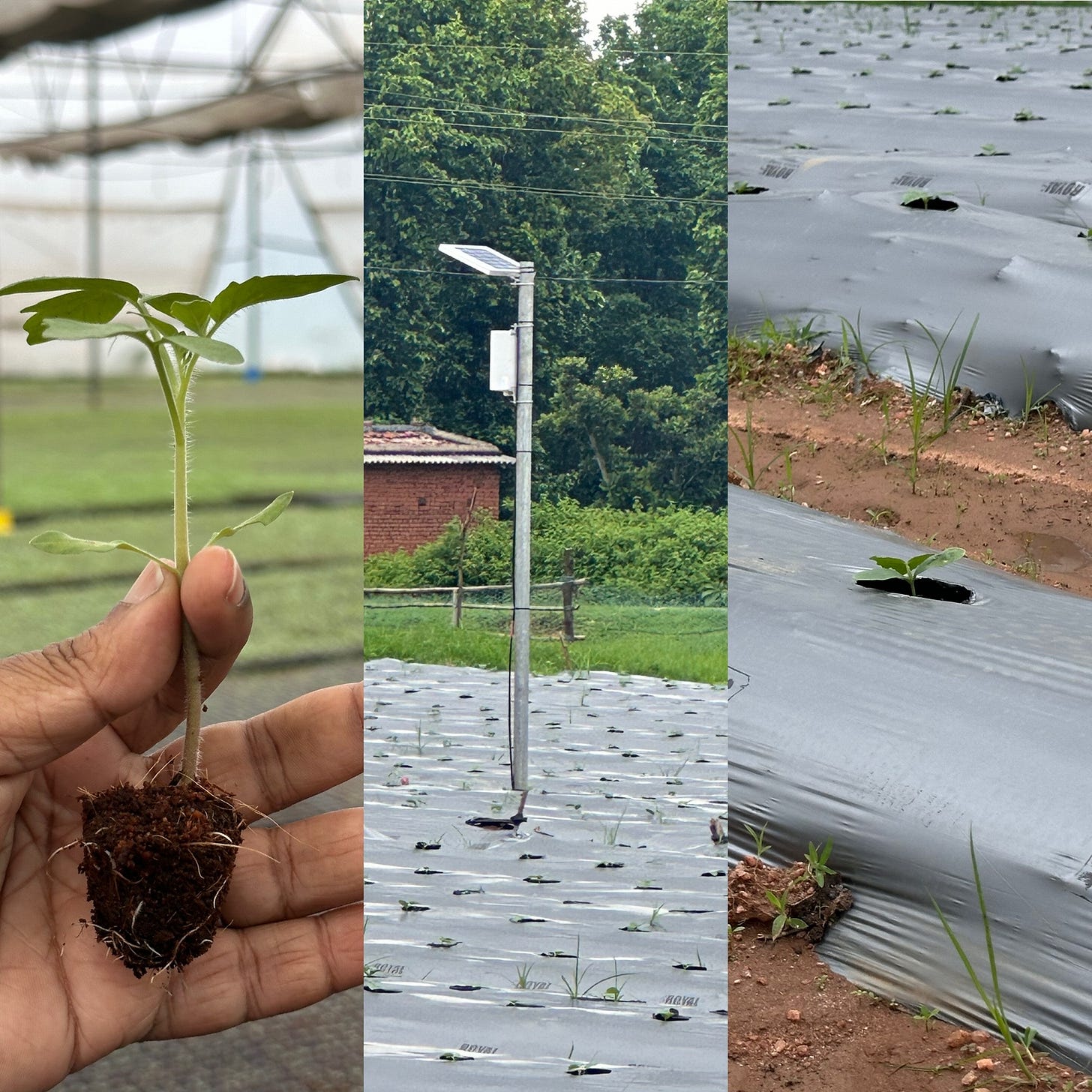From a 'nobody' to a role model: The man behind a sustainable agri-startup
A field trip to remote villages in Jharkhand shows how sustainable agri-businesses are taking root, sustainable for the globe and profit. Next dispatch, a woman entrepreneur's climate dilemma.
In his own words, Rajendra Tudu was a nobody. Too poor to finish his education, he ended up 1,700 km away in Mumbai washing dishes for 30 rupees (less than a dollar) a day. Over the next dozen years or so his income didn't improve much, earning about 3,500 rupees a month by 2015.
He left the city of dreams to return to a lush green but impoverished, non-descript place in a crumbling house that was home in Jharkhand to try his luck.
Now 40, Rajendra, a tribal, returned because life was too hard in the far-away megacity for the young father. In his Nagri village, he opted to join the service delivery model run by the women leaders along with Collectives for Integrated Livelihood Initiatives (CInI) to grow and sell vegetable seedlings. The tiny, finger-long plants have changed his life and of his community. This was under the CInI programme 'Lakhpati Farmers' i.e. to increase small and marginal farmer incomes by Rs 100,000 (one lakh) or more annually.
Farmers saw value in what he offered. Seedlings of cash crops like tomatoes, chillis, brinjal, cucumbers, and watermelon, produce they hadn't grown before. Today, each seedling sells for a little over a rupee; for watermelon and bitter gourd seedlings it's between Rs 2.50 and 3.50, and if it's a grafted seedling then it can be as much as 10 rupees or more. The price may not seem much but the scale is immense. Thousands of seedlings in each cycle and 15-20 cycles in a year.

Then and now
Today, where he was a 'nobody', he's sought out as Rajendra dada, elder brother, a role model. Where Rajendra was once unemployed, he now provides daily employment to about 20 people.
Where he was barely educated, today he’s got two children in colleges in two distant cities and another child in a school nearby - all studying in “English medium,” a community worker proudly chips in.
Where he was earning Rs 3,500 a month washing dishes in Mumbai, he now has a turnover of lakhs of rupees.
Recipe for Rajendra's success
It's not just one person's success but a whole farming community's. What CInI (Collectives for Integrated Livelihood Initiatives) did was to create an ecosystem with targeted interventions. At an individual level, they facilitated the finance for Rajendra's seedling business. While he stumped up Rs 30,000 and took a loan of Rs 120,000, CInI arranged a grant support of over Rs 185,000 and equipment costing about Rs 46,000. The NGO also provided training and logistics. In 2017, he set up a polyhouse, a large specially designed tent that helps protect saplings/seedlings against unsuitable weather and pests. He sold the seedlings to farmers.
The terrain here is hilly with flat patches that farmers use for the main crops like paddy. The hilly bits of farms were largely uncultivated. The farmers began using Rajendra's products. For them the watermelons especially were gold. Nobody had ever cultivated these here but now these seedlings command a premium. Incomes rose all around thanks to a variety of cash crops they began to cultivate in the unused parts of farmland.
Rajendra was able to build himself a pucca house, the largest in his tiny hamlet. The fact that he was able to foreclose his loan in 30 months instead of 36 and that he's making another polyhouse without taking a loan demonstrates the soundness of this agri-business. All it required was an organisation to give him a break. There are about 60 such agri entrepreneurs in Jharkhand enabling service to around 30,000 households.
They are supported by a network of small self-help groups across a few villages, in turn supported by a larger producer group which in turn is backed by a Farmer Producer Company (FPC) a registered company that oversees two blocks. The failure rate is about 10% or less, says the FPC's board of directors (all women, but that's another story.)
Hi-tech on offer: From saplings to satellite
Driving around Churchu, the farmland of the agri entrepreneurs visibly stand out. Polyhouse tents, rows of mulch sheets on the ground, solar-powered sensors, and houses rather than huts. Multiple agri technologies are being used: Solar-power irrigation, drip and mulch to improve yields of produce like cucumbers, GPS data of the farmland captured by a cropping, satellite-based app which helps farmers with weather warnings and irrigation prompts, polyhouses of various types and protective cultivation for what CInI calls precision farming.

Ganesh Neelam, CInI's executive director, explains the larger picture. Such projects are important to create supply and demand. That is, supply of climate resilient and sustainable tech, and demand from unprivileged communities who see value - increased income - in investing in such tech despite their poverty. Neelam says, “The overall goal is towards enabling the farmers to meet their aspirations in a sustainable manner. Through the women-led enterprises linked with the entrepreneurs, the larger ecosystem of technology, financing, and markets, is getting built up for farmers to take risks and strengthen their livelihoods.”
The programme is currently sustained by grants, mandatory corporate social responsibility expenditure, philanthropies and some funding by financial institutions. Despite the obvious profitability across multiple case studies, these aren't supported much by private capital to scale, capital that is otherwise happy to lend for second homes, second cars, or start-ups trying to become unicorns.
The question is what will it take to convince banks, VCs, and others to invest in the Rajendra Tudus of India? At a time when doubling farmer incomes is proving to be a challenge, these climate and sustainability solutions have proved how incomes can be more than doubled.


